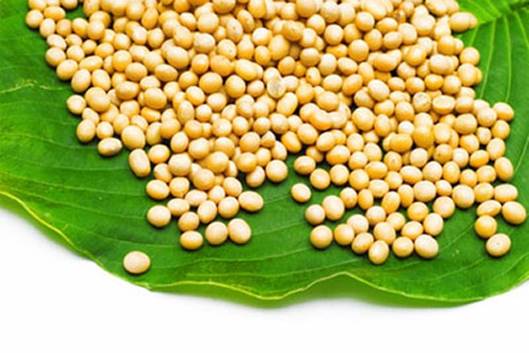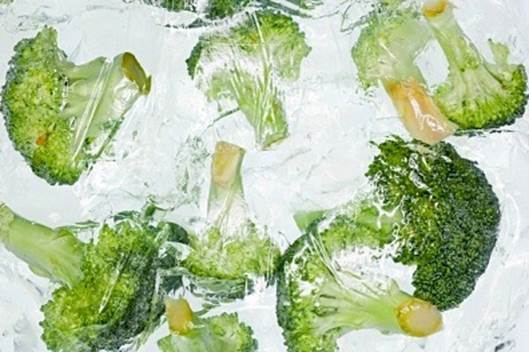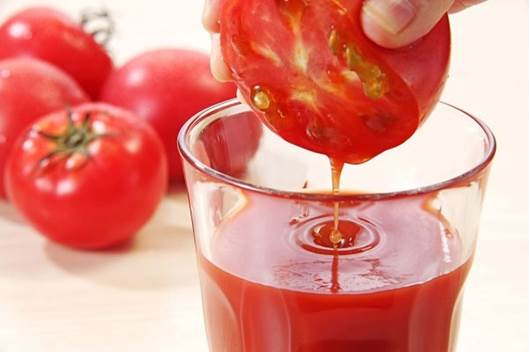If moms just care about providing vitamin D
and calcium to babies but miss other nutrients, they will have made a terrible
mistake.
There’re important nutrients and their
wonderful use on baby’s development.
1. Magnesium
Uses: Magnesium is very important to
children’s health because it help the bone to be strong and remain certain
heartbeat. Magnesium also helps the muscle and nervous system work well.
Besides, an immune system can’t be good without magnesium.
The essential amount of magnesium: children
from 1-3 years old need 80mg magnesium a day and the 4-8-year-old need 130mg
magnesium a day. If children absorb too much magnesium, they can have
stomachache and diabetes or be poisoned.

Soy
is rich in magnesium.
Magnesium highly converge in foods like
seeds, legume foods which are a best source of magnesium include soy, peanut
butter, black beans, dried grapes, yogurt, avocado, banana and grains…
2. Zinc
Uses: if children’s body is lack of zinc,
they will have slow height development and tend to have sleeping difficulties.
There’re over 70 enzymes depends on zinc to maintain digestion and body
metabolism. Therefore, zinc is one of the most important nutrients to
children’s development and health.
The essential amount of zinc: children who
are 1-3 years old need 3mg zinc a day; to the ones who are 5-8 years old is 5mg
zinc a day. The excess of zinc will cause vomit, diarrhea and in the long run,
serious poisoning to children.

Chicken
thighs are rich sources of zinc.
There’re foods that are rich in zinc, such
as fruit yogurt, instant oatmeal, chicken thighs, cheese, tofu, wheat and
seafood…
Women should feed their children with a
variety of foods and take notice of providing rich-zinc foods for children
diet.
1. Vitamin E
Uses: Vitamin E plays an importance part in
doing a healthy immune system. It also takes part in repairing DNA structure
and metabolic process. Besides, vitamin E is able to withhold producing free
radicals – a molecule causing cell destruction.
The essential amount of vitamin E: In fact,
there’s no satisfied supply of vitamin E for children in daily diet as moms
lightly pay attention to foods that have the vitamin. The need of a
1-3-year-old baby is 6mg or 9IU vitamin E a day, to the ones that are 4-8 years
old, it’s 7mg or 10.5IU vitamin E a day. Parents should let their children eat
a variety of foods to avoid lacking nutrients.

Eating broccoli is a good way to provide
vitamin E to the body.
Foods that contain lots of vitamin E are
green vegetables, fruits, seeds, such as sunflower seed, almond, peanut butter,
kiwi, oil, broccoli, soy and mango…
Potassium
Uses: Potassium helps stabilize heartbeat
and brings good health. A combination of potassium and sodium will help balance
the amount of water in the body, which maintains healthy blood pressure. On
another hand, potassium is able to reduce the risk of kidney stones for
children.
The essential amount of potassium:
According to The American Dietetic Association, potassium is one of nutrients
that kindergarten children are lack of the most. For that reason, parents
should pay more attention in adding those nutrients in children’s nutrition
menu. The amount of potassium that is needed for a day to children who are 1-3
years old is 3,000mg; to 4-8-year-old ones, it’s 3,800mg.
Foods that have plenty of potassium include
baked potato, prune juice, dried grape, tomato juice, orange juice, white
beans, sunflower seeds, banana, honey…

When
having an excess amount of potassium, children will feel tired, have weak
muscles cramps, intestine issues and abnormal heartbeat.
Vitamin A
Uses: Most people know that vitamin A plays
an important part in developing children eyesight. Besides, vitamin A also help
tissues, especially hair, nails and skin healthily develop. Vitamin A also
prevents the body from infection.
The essential amount of vitamin A: children
who are 1-3 years old need 1,000IU (300mcg) vitamin A per day while the ones
who are 4 years old and over need 1,320 IU (400mcg) vitamin A per day. When
children eat much animal liver, carrot, pumpkin and drink muck milk, it’s
possible that the children have an excess of vitamin A. absorbing too much
vitamin A will cause vomit, nausea, headache, dizziness, and inactive joints
and muscles. The situation can lead to liver issues and the loss of central
nervous system control.

Vitamin A in pumpkin is good for
eyesight development.
Foods that have lots of vitamin A are
carrots, watermelons, apricot juice, bell peppers and mango juice. In general,
vegetables that are colorful are rich sources of vitamin A.